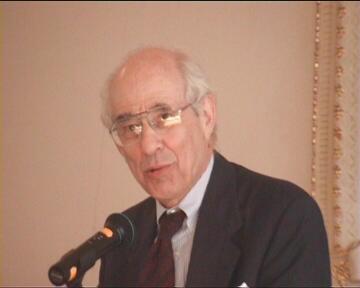|
|
|
Contents |
"Steven Stich ('Autonomous psychology and the belief-desire thesis') argues from the wideness of beliefs and desires that most such contentful states cannot be invoked in a genuinely explanatory psychological theory, and that, therefore, most or many of our everyday singular causal statements that specify beliefs or desires as causes of actions are without foundation." Lycan, Reader, 2nd Edition, p.254
(By a 'wide' belief is meant a belief which depends on context for its identity - as discussed: similarly for 'wide' desires.)
 Replicas
with different beliefs
Replicas
with different beliefsIf the representational theorist is right, another body in exactly the same state as me would have the same beliefs.
But think of building a replica of my body: an exact physical replica, atom by atom alike.
This would, according to the representationalist, be bound to have exactly my beliefs.
But Stich argues that they in fact wouldn't necessarily hold the same beliefs. He develops the following kind of scenario to demonstrate this (as he thinks):
Suppose I had tasted the Romanian Pinot Noir for the first time last week.
Ask me and I say: Yes, I've tasted the Romanian Pinot Noir.
Ask my replica and 'it' says: Yes, I've tasted the Romanian Pinot Noir.
But Replica hasn't - it's only just been built.
So we have one state of the world - the fact that I have tasted the Pinot Noir last Tuesday, say. And we have the state of my brain and the state of Replica's brain, which are identical states.
Stich puts his point by saying that therefore they must have different beliefs.
I find this powerfully counterintuitive, but he thinks that in spite of the intuitions people sometimes report, his point survives. (He is worried enough by the revolt of the intuition to add an appendix to his article.)
He says that the view of belief he is discussing is the claim that it is a relation between a person and an abstract object (eg a proposition). He says:
'A pair of subjects' belief tokens are of the same type when the subjects are related to the same abstract object. Thus ... their belief tokens are of the same type only if they are identical in truth value.'
But you may ask: Why should he say this? Why should the identity of a belief rest on its truth value?
Does he think this, that the abstract object (eg proposition) which is involved in a belief is somehow partly constituted by what it purports to point to? - that a representation of a state of affairs is somehow altered in character dependent on whether the state of affairs actually obtains or not? Does the representationalist account of belef somehow commit you to this?
I leave this question open. I'm not sure how he is to be interpreted.
Let's consider then another argument for the conclusion that beliefs are part-constituted by their context.
 |
| Hilary Putnam, pic thanks to Nicolaus Copernicus University in Torun, Poland |
It is a well-known fantasy presented by Hilary Putnam, who by putting it forward started this whole line of discussion off.
You are to suppose there is a world just like our own except for one particular: the colourless liquid which forms the seas and rivers of the replica world has the chemical analysis XYZ instead of H20.
My replica has exactly the same brain state as me when what he believes is that XYZ is a bit boring as a drink, while I believe that H2O is a bit boring as a drink.
Conclusion: beliefs depend on content.
Says Putnam: "Meanings just ain't in the head" (see John Heil, Philosophy of Mind, London, 1998, Routledge, p.216).
"What words mean, and similarly what thoughts those words express, depends on whatever it is with which speakers and thinkers causally interact.... Applying this theme more broadly, we can say that the meanings of the words we use and the contents of our thoughts (what our thought concern) depend on causal relations we bear to our surroundings. Heil, Philosophy of Mind, p.216.
Prompt: What do you think?
While our brains are beginning to process this argument let us call another contestant into play.
| Brain implant may restore memory |
|
Thanks to Rutgers University |
The idea here is to bring to the fore the conception of psychology which restricts it to those properties which are grounded in physical states of the brain.
You might want to call this the scientific conception of psychology. It is not incompatible with epiphenomenalism, but it is incompatible with other forms of dualism. It rests on the assumption that mental items peel no onions by themselves. They may be real enough, but if so are entirely dependent on physical sates of the brain - upon which, in the terminology of Jaegwon Kim, they 'supervene' (Stich, Reader 2nd edition, p.260).
'One class of properties supervenes on another if the presence or absence of properties in the former class is completely determined by the presence or absence of properties in the latter.' Stich, Reader, 2nd edition, p.260.
'...[T]he principle of psychological autonomy states that the properties and relations to be invoked in an explanatory psychological theory must be supervenient upon the current, internal physical properties and relations of organisms.' (Stich, Reader 2nd edition, p.260)
When we sponsor this view of psychology we are accepting that 'the best explanation of behaviour will include a theory invoking properties supervenient upon the organism's current, internal physical state.' (Stich, Reader 2nd edition, p.261)
Stich offers the following as a graphic way of putting this conception of psychology:
"[S]uppose we have before us a human being ... and his exact replica. What the principle of autonomy claims is that these two humans will be psychologically identical, that any psychological property instantiated in one of these subjects will also be instantiated by the other." Stich, Reader, 2nd edition, p.259.
Just to annoy:
"Stich is one of the clearest writers on the philosophical scene today. . ... a role model for young philosophers." Robert Cummins, University of Arizona
Once we have got clear about the principle of psychological autonomy the significance of the argument that beliefs - or many of them - depend for their identity on context is straightforward. It means that such beliefs cannot enter into scientific explanations of behaviour - if the autonomy of psychology is accepted.
It has been suggested that one implication of the thesis that beliefs are not fully determined by the state of the brain is that the subject cannot properly claim to have special authority in knowing what beliefs he or she has. Our special authority is supposedly based on the special introspective power we have in relation to our own mind, but we can only know by introspection states of mind that are grounded in states of the brain.
Prompt: Agreed?
A related implication is that if psychology is to be autonomous it cannot use beliefs in its explanations.
Autonomous psychology would try to explain behaviour in terms of brain states and the laws that are discovered to govern them, and if beliefs are not to be identified with brain states, beliefs could not figure in its explanations.
Do we have to make a choice?
Prompt: which do you throw out?
Sexy panda animation thanks to John F. Sowa and Cora Angier Sowa.
Doppleganger pc: thanks to Curtis Seaman
END
Revised 30:03:03